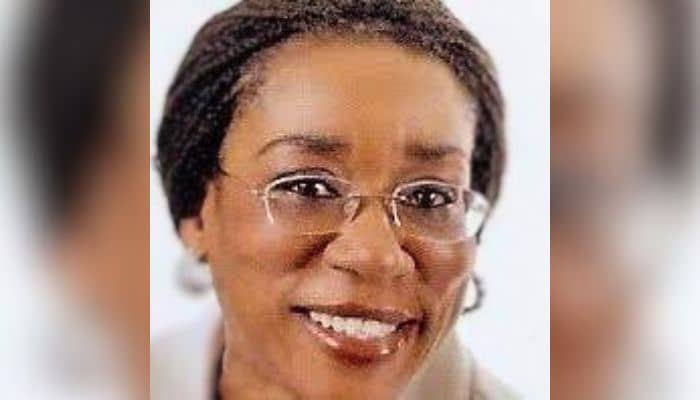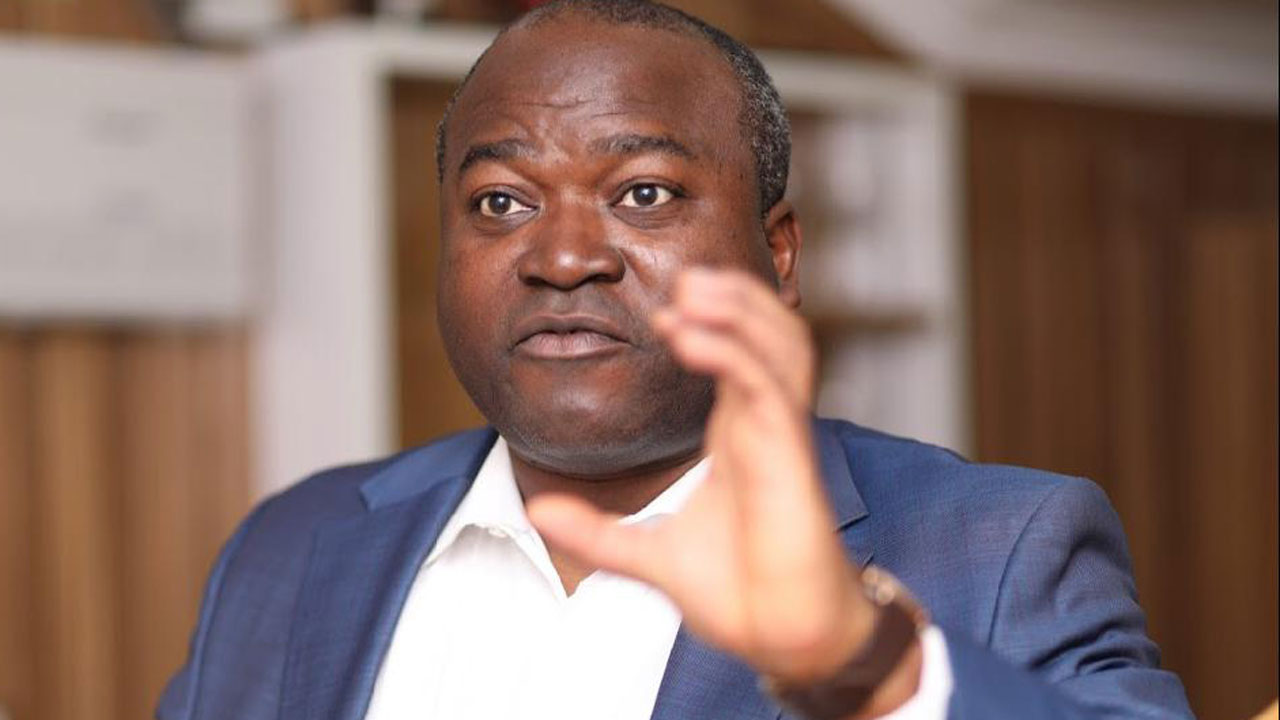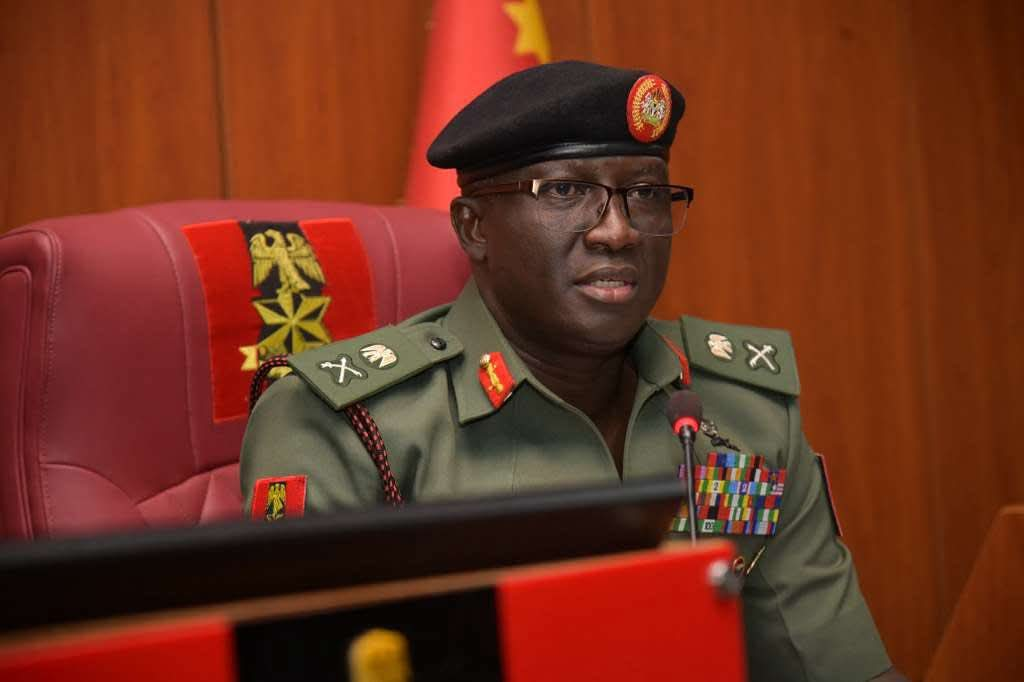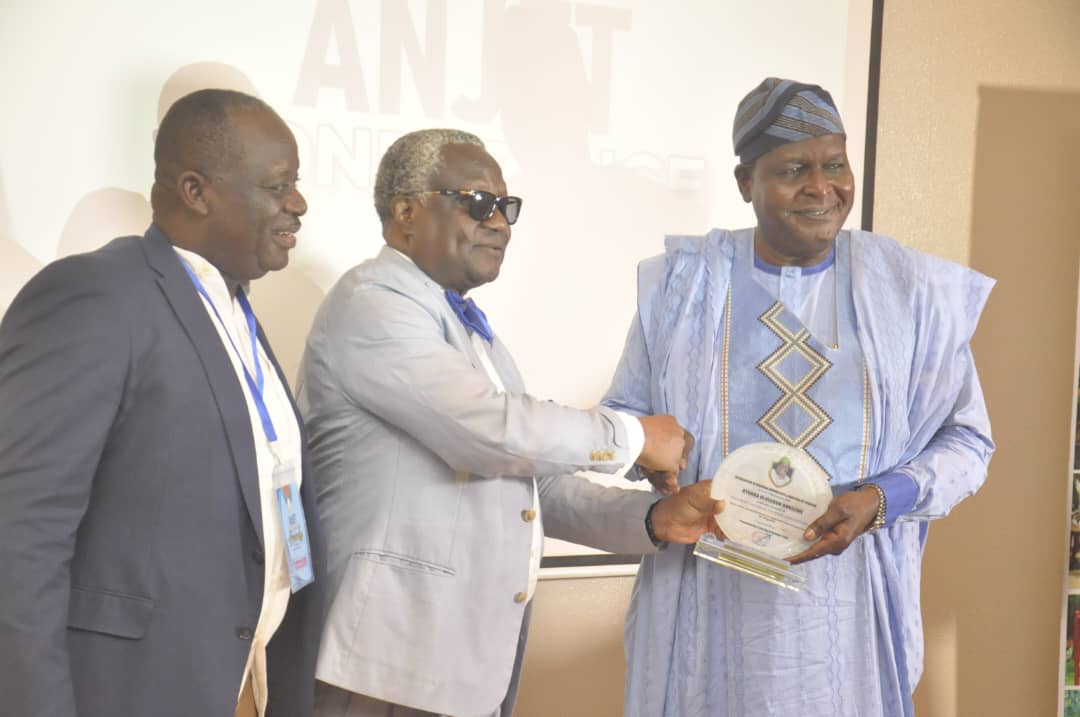Personality in Focus
IPADA: The President is Just Being Nice

By Frank Meke
In the Nigerian tourism space, the Federal Government has always been nice to the sector. They usually pat us on the back; good boys, they chorus, you all are doing well!
The industry, the cultural tourism sector, is not only being “managed and accommodated” as an orphan, It has always been visited with expired politicians seeking just any place to fluent their borrowed agbada or a place for jobs for the boys.
During the military era, cultural tourism sector was dubbed a mere “preferred” sector, meaning it’s time and season is on hold until a more better and serious economic players like oil, commerce, transportation, banking and aviation sectors have been properly situated, grounded and funded before Nigeria can bet its assets and strength on the “come and enjoy” platforms of cultural tourism.
As it’s at the federal level, our state governments, which are mere copy cats of the confusion at the centre, takes the deceptive shenanigans to a mundane level, and in most states, treats the business as a special purpose vehicle of corruption.
If you have been around in this sector, it would amount to a story retold that some so called state commissioners of culture, or tourism and some fanciful appendages, hardly have the ears of their governors, with some operating from offices( shanties) not befitting even pigs.
Let us not go back in history as we are not known to stay long on printed words but on figures, particularly when such figures( money) empower our vanities. In the past eight years, we have danced from one confusion to another with both the federal government and states, doing their magics in the name of tourism development.
The eight years of President Muhammadu Buhari basically gleaned the hairy scalp of the sector with a Mohammed that chose the valley than the mountain top of tourism.
We laboured hard to have the then president who was buffeted by insecurity in the nation to publicly identify with the sector and up our global integrity ranking.
The larger number of about 200 million Nigerians took to outbound visitations, putting pressures on our foreign exchange reserves, ignoring our goddamme forsaken tourism sites and festivals for packaged lollipops of Europe and the sweet wine valleys of south Africa.
Foreign embassies were besieged by holiday hungry Nigerians, with many of them willing to escape to Alsaka or any strange corner of the earth in order to have a foreign visa stamp on their maligned travel passport.
Just like in the aviation sector in Nigeria, where foreign airlines dominate our airspace without a reciprocal presence elsewhere, Nigerians swelled the tourism arrival and expenditure figures of most countries in the world while we shouted redemption from our corners.
Back home, we have more Nigerians telling stories of Spanish adventurers and explorers than the history of Badagry or Opobo. We forgot that tourism is about telling stories of nations and peoples, and trust our very miserable ministers and commissioners, who are usually at the behest of foreign trips to understudy civilizations which our ancestors bequeathed to the world through arts and crafts. The ancient Benin kingdom dates back in centuries before the marauding colonialists came plundering our huge cultural tourism assets. Do our children know that!
Evidently, today, and after making billions of dollars out of our ancestral heritage, the “wise men” thieving descendents of our troublers from Europe and America are now falling over themselves to return the loots and since we don’t have records of what was actually stolen from us, particularly from the Benin kingdom, we now have a concerned governor who has refused to pay the Ogba Zoo 36 million naira arbitration judgment awarded in favour of the zoo management over six years ago, now fighting the reverred Oba of Benin over the custody of the returned looted artifacts.
Just as the stories and history of our plundered cultural and natural resources are steeped in deep mystery, the history of slavery and socioeconomic impact is still not fully told.
Late Nigeria business mogul and pro democracy advocate, moshood kashimawo Abiola deployed his huge financial muscle and international connection in the 90’s to seek reparations cost to Africa, based on the very damaging plundering in human history by white colonialists through slavery and neo colonialism.
Those who love printed words, history, and traditions of the African black person should go read up the Abuja proclamation.
It was a painful, tears bearing story of how these white beings, damaged the lives of Nigerians and Africans whom they herded into ships and sold as slaves in America and all parts of Europe and even in the Arabian peninsula.
The late Abiola built integrity around the quest for reparations through the Organisation of African unity( OAU), now known as the African union ( AU) but we the black nations flunderred because we have a different story line to the reparation agenda.
Like I said earlier, we won’t waste so much ink on reparation but won’t leave the subject matter without drawing attention to the history of slavery through the shahel deserts. The story of slavery in Nigeria , no doubt, is dominated by the brutish and heartless human merchandise through the Atlantic waters of Nigeria. The desert variation is equally worth mentioning.
Recently, there has been some great noise about an “IPADA” ( home coming ) tourism project tied around the slave trade history of Nigeria. Our tourism minister, Mrs lola Ade John, is so upbeat about it and has shuttled between lagos and Abuja to push it as a Nigerian tourism story.
As usual, the process as much as it may bear fruit to our quest to reinvent our cultural tourism narratives, fell short of enjoying nationwide integrity support because it was still tied to apron strings of the initiator and founder.
First, in our complex nation as Nigerians and with each each region and people with different and diverse narratives of the slave trade, IPADA, which is a Yoruba word for ( welcome or return ( home), will have a tough buy in by other Nigerians from a Minister who is Yoruba, a founder, ( Yoruba) a president who is also Yoruba!.
Indeed, the haste to which the project itself was pushed forward without defining the parameters of the IPADA agenda within the complexities of the slave trade and cultural history of Nigeria and the tourism content gives it away as a castle in the air.
For those who may take to name calling, IPADA should have been clearly defined as a tourism agenda, focal to projecting, and attracting the Yoruba diaspora, which is one of the best documented and profiled Nigerian sub nation found across West Africa, Brazil and even in the United States, with their own colonies patterned after the traditional and cultural ecosystem as found in modern Nigeria.
At the villa introduction of the IPADA agenda, our president was nowhere to be found, and that rankled me. Is it a sign that the project does not have enough sociopolitical and economic values? Is it shortsighted on hosting venue and security integrity? Where were the governors, too busy for the IPADA agenda? Even if other state governors outside the southwest did not see the larger picture of the tourism content of IPADA, those from the south West nko?
For the first time, I would want to differ on the president absence at the event right within his expansive office, and I am sure the few diplomats , particularly from West Africa, noticed too.
When a father invites guests to the wedding ceremony of his son in his own house, not a rented public facility, he must show up even if he is too busy with his farm works because he is the chief celebrant and must let his guests and in-laws know that his son is close to his heart.
I am an unrepentant admirer of President Ahmed Tinubu political sagacity. His support to our media family is legendary, and I had expected the same integrity support and presence for the IPADA project even though there may be some noticeable shortcomings which can be corrected once the project gains traction.
To simply commend otunba wanle Akinboboye is not just good enough. There was nowhere in the president ” speech ” promising financial muscles to project.
Every tourism project is very expensive, I mean very expensive, so to merely provide the cosy facilities at the villa without the president and even his vice president showing up, tells me that our cultural tourism economy is still an orphan.
The president should take a second look at the IPADA agenda and give it a national outlook. Wanle Akinboboye has provided the ingredients deserving a national cultural tourism road map, but it takes the financial might and international muscle of the president, Federal Republic of Nigeria, to attract the attention of the world to Nigeria.
That is my take, except the minister, Mrs lola Ade John, just wanted to build a castle in the air with the IPADA villa adventure or maybe, maybe and maybe!
Personality in Focus
Lagos Police Celebrate Ayo Ogunsan on Appointment As LSSTF Boss

The Lagos State Police Command, under the leadership of the Commissioner of Police, CP Olohundare Jimoh, has extended its heartfelt congratulations to Dr. Ayo Ogunsan on his well-deserved appointment as the Executive Secretary of the Lagos State Security Trust Fund (LSSTF).
In a statement signed by the Command’s Public Relations Officer, SP Abimbola Adebisi, and made available to the National Association of Online Security News Publishers (NAOSNP), the command noted that “Dr. Ogunsan’s appointment is a clear testimony to the unwavering trust and confidence that the Governor of Lagos State, Mr. Babajide Sanwo-Olu, has in him.”
Reminiscing Ogunsan’s trajectory in the world of administration and security, the statement stressed that “Over the years, Dr. Ogunsan has demonstrated exceptional selflessness and commitment to strengthening the security architecture of Lagos State.”
The Command further noted as follows:
“The Commissioner of Police is confident that Dr. Ogunsan, as a distinguished member of the LSSTF Board, will assume this new role with deep institutional knowledge, proven integrity, and unwavering dedication, coupled with a strategic understanding of the security needs of Lagos State. The Command has no doubt that he will deliver on his mandate successfully.
“Dr. Ogunsan’s continued valuable contributions to the LSSTF and his longstanding partnership with security agencies across the State have positioned him exceptionally well to steer the Fund towards greater operational efficiency, an outcome that will undoubtedly enhance public safety and security throughout Lagos State.
“The Lagos State Police Command once again warmly welcomes his appointment with deep optimism and hereby assures the new Executive Secretary of its unwavering partnership and cooperation. The Command is proud of him and immensely happy to be associated with him.
“The Lagos State Police Command looks forward to further strengthening the existing synergy, support, and operational collaboration with Dr. Ayo Ogunsan and the LSSTF team in ensuring the continued safety and protection of all residents and visitors in Lagos State.”
Prior to his appointment, Ogunsan was a Board Member of the Trust Fund.
Personality in Focus
COAS Shakes Up Army Hierarchy, Appoints New Principal Officers, Commanders

The Chief of Army Staff (COAS), Lt. General Waidi Shaibu, has approved the appointment of some senior officers to top strategic command and positions, aimed to strengthen command structures and reposition the Nigerian Army for heightened operational effectiveness.
According to a statement by Army’s spokesperson, Lt.-Col. Apollonian Anele, on Thursday, the appointment cut across key command, staff and instructional positions across formations, units and training institutions of the Army.
Among the new appointees are: Major General Bamidele Alabi, who has been redeployed to Army Headquarters Department of Policy and Plans and appointed Chief of Policy and Plans (Army); Major General Jamal Abdulsalam, formerly Chief of Special Services and Programmes at Army Headquarters proceeds to Defence Headquarters Department of Operations as Chief of Defence Operations while Major General Peter Mala moves from Office of the National Security Adviser to Headquarters Training and Doctrine Command Nigerian Army (TRADOC) as Commander.
Major General Samson Jiya, from Nigerian Army Heritage and Future Centre (NAHFC) moves to Defence Headquarters Department of Defence Accounts and Budget as Chief of Defence Accounts and Budget.
Other strategic appointments include, Major General Mayirenso Saraso from NAHFC to Army Headquarters Department of Operations as Chief of Operations (Army); Major General Isa Abdullahi from Defence Headquarters to Army Headquarters Department of Administration as Chief of Administration (Army); Major General Musa Etsu-Ndagi from Army Headquarters to Department of Training to Army Headquarters Department of Civil-Military Affairs as Chief of Civil-Military Affairs. Major General Abubakar Haruna from NAHFC to Nigerian Army Training Centre (NATRAC) Kontagora as Commander and Major General Philip Ilodibia from Army Headquarters Department of Policy and Plans to Defence Space Administration as Chief of Defence Space Administration.
Others are: Major General Godwin Mutkut, from Multi-National Joint Task Force (MNJTF) N’Djamena to Headquarters Infantry Corps Centre as Corps Commander Infantry, Major General Umar Abubakar from the Ministry of Defence to Headquarters Nigerian Army Armour Corps as Commander Armour Corps, Major General John Adeyemo moves from Nigerian Army School of Artillery (NASA) to Headquarters Nigerian Army Corps of Artillery as Corps Commander Artillery and Major General Mohammed Abdullahi from Nigerian Army Cyberwarfare Command to Headquarters Nigerian Army Signals as Corps Commander Signals.
Also, Major General Taofik Sidick has been redeployed from the NAHFC to Headquarters Nigerian Army Finance Corps as Chief of Accounts and Budget (Army), Major General Abdullahi Ibrahim from NAHFC to Headquarters Nigerian Army Ordnance Corps as Corps Commander Ordnance, Major General Adeyinka Adereti from Defence Headquarters to Headquarters Nigerian Army Electrical and Mechanical Engineers as Corps Commander, Major General Nansak Shagaya from Army Headquarters Department of Operations to Headquarters Nigerian Army Corps of Supply and Transport as Corps Commander Supply and Transport while Brigadier General Yusha’u Ahmed has been appointed acting Corps Commander Education.
The COAS also approved the appointment of Major General Oluyemi Olatoye, from Headquarters 82 Division/ Joint Task Force South East Operation UDO KA to the Nigerian Defence Academy (NDA), Kaduna and appointed Commandant, Major General Emmanuel Mustapha from Defence Space Administration to Nigerian Army Signal School as Commandant, Major General Adamu Hassan from Nigerian Defence Section, Riyadh, to Nigerian Army School of Artillery as Commandant and Brigadier General John Bulus from Headquarters Nigerian Army Finance Corps to Nigerian Army School of Finance and Accounts as Commandant.
According to the statement, the senior officers appointed as field commanders includes, Major General Saidu Audu from Army Headquarters Department of Training to Multi-National Joint Task Force (MNJTF), N’Djamena, as Force Commander, Major General Warrah Idris from Defence Headquarters to Joint Task Force North West Operation FANSAN YAMMA as Commander and Major General Oluremi Fadairo from Army Headquarters Department of Civil Military Affairs to 82 Division Nigerian Army, Enugu as General Officer Commanding and Commander Joint Task Force South East Operation UDO KA.
Other appointees are Major General Olatokumbo Bello as the Director Defence Media Operations at Defence Headquarters while Brigadier General Samaila Uba was redeployed from the Armed Forces Command and Staff College Jaji to Defence Headquarters as Director Defence Information.
The CIAS charged the new appointees to bring to bear their wealth of operational experience, administrative acumen and strategic foresight in driving a disciplined and combat-ready Army to decisively confront the contemporary and emerging security challenges.
He urged them to sustain the current operational momentum, strengthen interagency collaboration and remain unwavering in upholding the Nigerian Army’s core ethos of loyalty, selfless service, integrity and excellence.
Personality in Focus
Runsewe Bags ‘Pillar of Nigerian Tourism and Culture’ Award

Former Director General of the National Council for Arts and Culture (NCAC) and the Nigerian Tourism Development Authority (NTDA), Otunba Segun Runsewe, has bagged the award of Pillar of Nigerian Culture and Tourism.
The award was conferred on him by the Association of Nigerian Journalists and Writers of Tourism (ANJET), the umbrella body for Nigerian travel press, on Thursday, October 23 at a colourful ceremony held at the prestigious Sheraton Lagos Hotel and Towers.
He was among some distinguished Nigerians from public and private sectors, including the former Nigerian Minister of Tourism and Culture, Ambassador Frank Ogbuewu, who were honoured for their contributions to the growth and development of Nigerian tourism.
Other distinguished Nigerians conferred with awards were: Otunba Wanle Akinboboye (Foremost National Tourism Builder and Creative Mind), Mr. Jemi Alade (National Trailblazer in Inbound Tour Operation) Engineer Tarzan Ganiyu Shekoni Balogun (National Icon in Tourist Boat Operations and Water Transportation), Mr. Nkereuwem Onung (Icon of Consistency and Resilience in National Tourism Leadership), and Chief Abimbola Bode-Thomas (Hospitality and Tourism Management Amazon).
Speaking on the award conferred on Runsewe and the other awardees, the President of ANJET Mr. Okorie Uguru said the awards aim to promote the culture of service to the people, and also showing appreciation to those who have served the nation with distinction while holding public office.
He said: “It is not about celebrating those who are serving the country now, but showing appreciation to those who have served in the past, to challenge current political office holders to put in their best.
“The individuals and distinguished Nigerians we are honouring are among the people that built the visibility and growth the tourism industry is enjoying today… They have contributed, and are still contributing to the sector.
“As holders of institutional memories and archivists of this industry, we know the roles they have played and are still playing in the development of the Nigerian tourism industry. That is why years after some of our awardees have left public offices, we still call them to bestow this honours.”
While receiving the award, Runsewe lamented the inability of Nigeria to take tourism seriously. He said: “I stopped talking for some time because there are too many talks in tourism, there is no action. We come; we speak big English and go back. Today, I am going to reveal two or three things. The last time I came out was to speak to the new executives of the Federation of Tourism Associations of Nigeria (FTAN). For me, I am almost tired of talking, because there is no action.
“Let me first of all thank Ambassador Ogbuewu today. He said he does not want to come, so I urged him to come. It is only the living that can be celebrated. Let us thank God that during our lifetime, we are being celebrated. It is not everybody that has that opportunity.
“I can stand anywhere and talk about this industry. I do not need a book.
“Ambassador Ogbuewu you would recollect that President Obasanjo took your very good self, led a delegation to Trinidad and Tobago. That was the day Obasanjo made a statement, he said ‘I going to stand on the existing protocol’. That was the first time they heard that English. The then president of Trinidad asked, ‘what is he talking about.’ That is a tourism brand.
“People do not understand tourism yet. People think it is only about moving from one place to the other. No. Let me reveal a few things: how many of us know the late Pastor T.B. Joshua. T.B. Joshua was selling religious tourism and nobody keyed into it? When T. B. Joshua was having his conference in Nigeria, there were over 20 private jets parked at the airport. I, maybe you did not know before today, I normally go to the airport to list how many countries they come from. I have my data. There is religious tourism in Nigeria. We have not tapped into it. We see them as pastors. Yes, pastors doing their job, but there is tourism content in what they are doing.
“If this country manages tourism well, we should not have a single child looking for a job. After agriculture, tourism is the biggest employer of labour, but we are still playing games, we are still telling ourselves stories.”
He thanked ANJET for the award and encouraged them to continue with the good work in the industry.






